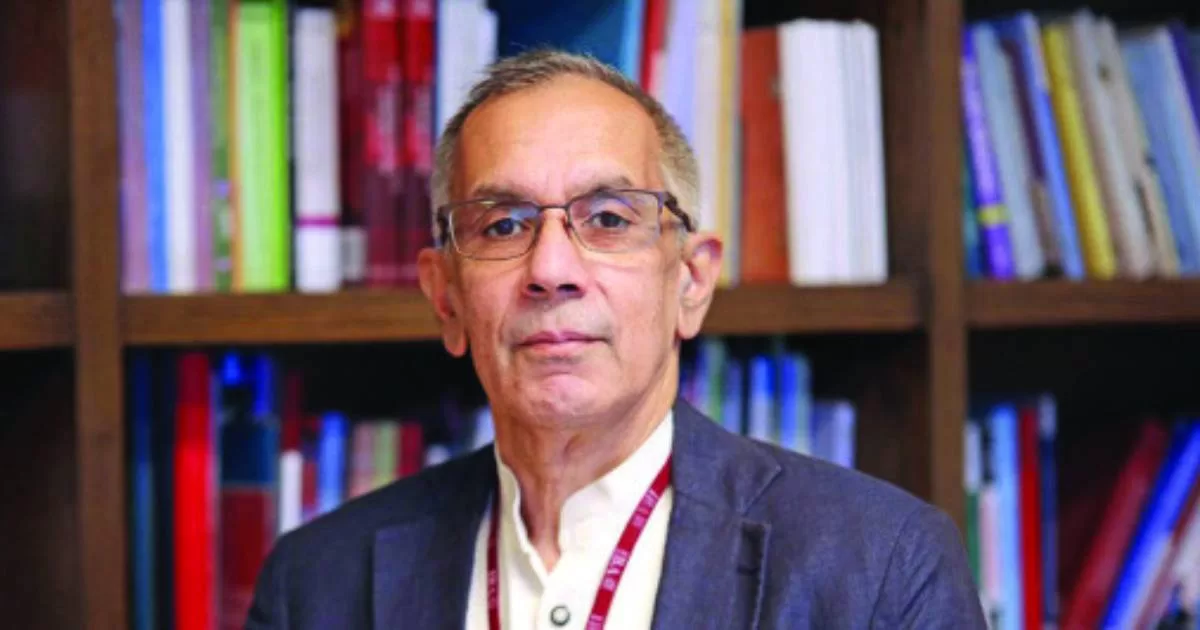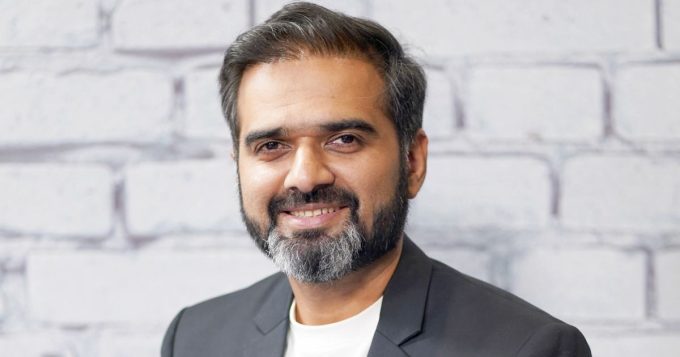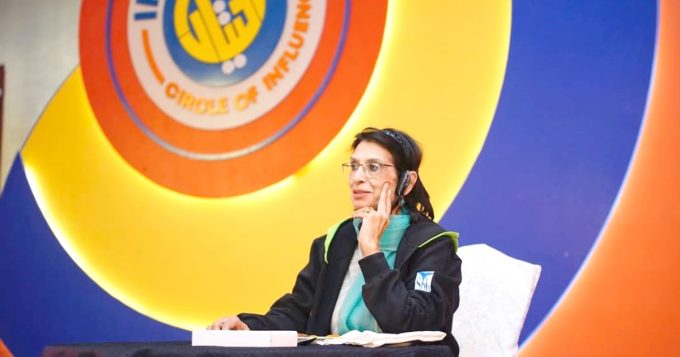Dr S. Akbar Zaidi, a leading political economist and Executive Director of IBA Karachi, has taught at institutions like Columbia University and Johns Hopkins University. With over 40 years of academic and policy experience, he has been instrumental in transforming IBA into a modern, multidisciplinary university. In this interview, he reflects on IBA’s 70-year journey, Pakistan’s digital finance landscape, and the future of inclusive innovation.
Synergyzer: What are some of the most defining moments in IBA’s 70-year history?
Dr S.Akbar Zaidi: IBA celebrates its 70th year, marking not just longevity but also remarkable growth.A major turning point for IBA came in 1994 when it gained autonomy from Karachi University and began awarding its own degrees, an important milestone toward becoming a full-fledged university.
Around 2005, a significant infrastructure overhaul began, resulting in the modern, well-equipped campus we see today. This transformation elevated both IBA’s facilities and academic environment. About five years ago, IBA was restructured into three specialised schools: The School of Business Studies, School of Mathematics and Computer Science, and the School of Economics and Social Sciences, enabling more focussed academic growth. Together, these milestones have shaped IBA’s evolution and strengthened its foundation for the future.
Synergyzer: How do you interpret Pakistan’s current digital financial revolution? Are we witnessing genuine structural change or simply a surface-level tech makeover of outdated systems?
Dr S.Akbar Zaidi: I believe it’s a combination of both a tech makeover and a deeper structural shift in Pakistan’s financial sector. On the surface, we see more apps, widespread smartphone use, and increased reliance on digital platforms. However, beyond this, fundamental changes are underway. Take RAAST, for example; it now processes millions of transactions daily, marking a significant move away from traditional financial methods. Payments are increasingly digital, transforming how people transact.
This reflects not just growing digital habits but also the emergence of a new financial infrastructure. That said, we still have a long journey ahead. A notable gap is the absence of services like PayPal, which would be a major advancement. While digital finance is growing, it has not yet reached the maturity or scale seen in other countries. Apps like Foodpanda, Daraz, and Yango have revolutionised everyday behaviour, making direct bank payments common. Yet, limits on transaction amounts remain, hindering scalability and requiring review.
Despite progress, Pakistan lags behind nations like Kenya and Nigeria, which have made greater strides despite comparable challenges. With around 70% smartphone penetration, or approximately 140 million users, Pakistan’s fintech ecosystem hasn’t kept pace. We are evolving, but not fast enough or on the scale needed.
Synergyzer: In your opinion, how should digital financial innovation be regulated? What lessons can Pakistan learn from more mature fintech economies where inclusion and innovation coexist more visibly?
Dr S.Akbar Zaidi: Regulation is absolutely essential, but the digital platforms, themselves have already introduced a form of oversight. Every transaction is linked to a phone number, which is tied to an identity through NADRA, PTA, and the State Bank of Pakistan. These institutions monitor digital financial flows, allowing us to track where payments come from, who sends them, and how often.
While this does not eliminate corruption or the grey economy, it makes many practices more traceable. For example, paying an electricity bill via a mobile app creates documented transactions that can be analysed. The growing volume of digital payments generates valuable data, helping economists and analysts identify patterns, inefficiencies, and loopholes. Better data helps us understand these trends and address gaps. So, regulation is vital, but equally important is using this data intelligently — to shape policy and improve transparency.
Synergyzer: How is IBA responding to the changing needs of students and the job market, especially in terms of fintech, entrepreneurship, and sustainability?
Dr S.Akbar Zaidi: We are definitely adapting, though I’ll admit we’re a little late to the game. We’ve recently introduced courses in Fintech, something that was not on our radar two years ago. We now offer programmes like a Master’s in Big Data Science and are expanding into business analytics. So yes, we are responding to market demands in terms of what we teach. At the same time, the environment is shifting on its own.
Today’s students are no longer solely aiming for jobs at multinational corporations. Many want to build something themselves, startups, apps, and their own ventures. There is a strong entrepreneurial energy, and much of the learning is self-driven, thanks to the accessibility of information online. Students today are experimenting, innovating, and often launching ideas before they even graduate. The workplace itself is evolving; remote work is in demand. In many ways, we are seeing a generation that is resourceful, independent, and enterprise-oriented, and IBA is working to support that shift.
Synergyzer: With Gen Z and Gen Alpha coming into buying power and growing up in a cashless world. What are the long-term implications of this behavioural shift?
Dr S.Akbar Zaidi: We talk about buying power, but do they actually have the money? Many are just using their parents’ credit cards; that is not real financial independence. They need financial discipline and education.
Countries like Sweden and others in Scandinavia have transitioned rapidly to cashless economies. In many places abroad, especially post-Covid, cash is simply not accepted. The pandemic pushed societies even further away from cash. But in Pakistan, we remain a largely cash-based economy, especially when it comes to under-the-table transactions.
This ties back to digital finance. The moment you pay via phone, that transaction is documented, where, when, how, and to whom. Your phone, your responsibility. That kind of traceability helps document the economy, which is essential because a significant portion of our funds still go unrecorded. But let’s be clear; this won’t eliminate corruption or informal cash transactions overnight. That will take decades. We will always be a “cash-full” economy, even as we move towards being cashless. We are following the global trend, slowly. But access here is still limited, and culturally, many still prefer doing transactions in person. We are on the path, but not there yet.
Synergyzer: Given your international academic exposure, especially teaching at Columbia, how do you compare Pakistan’s digital finance trajectory to that of other Global South economies?
Dr S.Akbar Zaidi: We are definitely behind. Other countries, especially in Africa, moved faster because someone took the lead. It is not that we can’t; we just haven’t pushed hard enough. Still, we are catching up slowly. What is fascinating is how adaptable people are, even without formal education. For example, my driver can’t read or write but uses WhatsApp voice messages to communicate.
Technology no longer relies solely on text. Smartphones and apps have opened new avenues of opportunity in low-literacy societies. From tailors sharing designs to home entrepreneurs managing businesses, this digital shift is reshaping lives and work.
Synergyzer: How do you feel about IBA’s recent achievement?
Dr S.Akbar Zaidi: It is a great achievement, an international recognition of what we have always believed; that IBA offers quality education with strong faculty and excellent infrastructure. Being among just over 1,060 universities worldwide with Association to Advance Collegiate Schools of Business (AACSB) accreditation places us in prestigious company and pushes us to raise our standards even further. More importantly, it benefits our students; this seal of quality gives them a real edge globally. We are proud of it. and rightly so.
Synergyzer: What message would you like to give to aspiring students and parents looking at IBA as their dream institution?
Dr S.Akbar Zaidi: IBA is one of Pakistan’s top universities, known for its competitiveness and high standards. Admission requires hard work, strong preparation, and excellent grades. Graduates often start with impressive salaries around PKR 150K. The student body is diverse, with about 30% receiving financial aid.
This year, over one billion rupees have been allocated for scholarships. IBA values merit above all; if you are good enough, financial constraints won’t hold you back. The campus fosters academic excellence, strong tech infrastructure, and a culture of openness where all beliefs are respected. It is a place where students truly grow and thrive. Highly recommended.
Synergyzer: What advice would you give to policymakers and innovators looking to make finance more inclusive and future-ready for Pakistan?
Dr S.Akbar Zaidi: To policymakers and innovators: the first step toward inclusive, future-ready finance is to ensure free, uninterrupted internet access and equality of opportunity. Blocking the internet and platforms like Twitter limits knowledge-sharing, innovation, and student learning. The internet is no longer a luxury, it’s a basic requirement for progress in education, trade, and digital finance. Keep platforms open, protect freedom of speech, and prioritise access to information if Pakistan is to move forward. Freedom of speech and thought are primary binding blocks for conscientious citizens.










